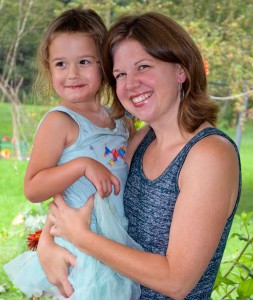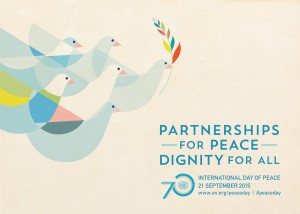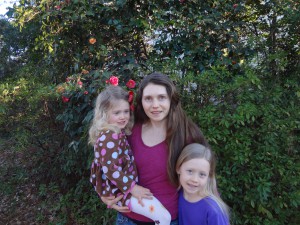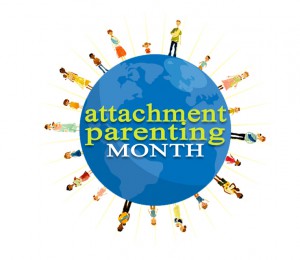Q: My family went to a restaurant the other night, and there was another family there with a toddler who was crying. The father roughly took the boy outside and came back a few minutes later. I assume the boy was punished in some way, as he was very upset and crying loudly that he wanted his mother, but the father didn’t allow him to do so. Our own children didn’t seem to notice, but the scenario was very upsetting to me and my husband. We didn’t know what to do, so we didn’t do anything. I worry about the example our lack of response sets for our children, and what — if anything — we could have said or done?
Q: My family went to the park recently, and there was a father yelling at his preteen son. The father then grabbed the boy’s wrist. They boy was yelling at his father to let go, and his father then twisted the boy’s arm in a way that we thought it might break. I stepped in and told the man he had to stop, and the man became very angry with me, telling me to stay out of his business and that he can parent however he likes. I was so scared that it was going to escalate, but thankfully after that, the man walked off. The boy with him was very quiet. Did I act inappropriately? I worry whether this was a wake-up call to that man, or if his son would be punished later for it.
A: We have all been in public and seen an overwhelmed parent losing her temper with her child — and many of us have been in that position ourselves!
It is tough to know how to respond when we witness this happening with another parent. In both of these situations, the parent losing his cool was the father. It may be most helpful that the person responding to another father is a father himself.
Mothers responding to other overwhelmed mothers often goes well — we have been there, and we know intuitively what to say to be both compassionate toward the mother and toward the child. But think about if the parent approaching you in your overwhelmed moment was a man. You may be thinking, what does he know about being in a mother’s shoes?
If your husband or another man was able to, he could respond in a way that would be both non-confrontational and effective. In the first scenario, the other family’s father took his son outside. It could’ve been very timely if your husband needed to go out to the car to grab something at the same time. Many parents who hit their children won’t do it if they’re around other people, and it might have given the man a moment to calm down and see the situation in a different light. Your partner could also offer an encouraging word if given the opportunity.
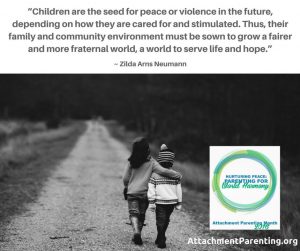 It doesn’t seem life-changing, but these kinds of subtle actions and words can be seeds of change that may cause others to think twice or pique their interest into other parenting approaches.
It doesn’t seem life-changing, but these kinds of subtle actions and words can be seeds of change that may cause others to think twice or pique their interest into other parenting approaches.
Likewise, in the second scenario, it may have helped if your husband was the person to approach the father, although we understand the urgency of the situation. This is a tougher situation, because the boy could’ve been badly injured. It should be addressed in a more direct manner. Depending on this situation, it may have been appropriate to report to authorities — as what you witnessed could be categorized as overt abuse. However, sadly, even this situation will likely fall under “none of your business” in the United States where corporal punishment is legal.
It is awful to watch, and while you definitely want to talk to your children witnessing it — and perhaps talking to your children about how your family does not do that and how you want to help other parents to find other ways to teach their children, may just prick the other father’s ears — the best response may be just offering your presence and the opportunity for the other parent to calm down his immediate response.
Many parents have found that even in these tough situations where the other parent is not open to support, we can still offer support to the child. Making eye contact with the child, which a child often can’t do with their angry parent if they feel shamed, can be empowering to the child. Another idea is to involve the child, if you’re given the chance, such as through a compliment, which can help the other parent regain perspective.
A mom once shared with Attachment Parenting International (API) about how an older couple offered her children a quarter each because “they were working so hard on being patient waiting for their food.” At the time of this unexpected compliment, their mom begged to differ, and she was struggling to keep her cool, but the older couple’s actions gave her encouragement and helped her remember that her children were acting their age and she needed to adjust her expectations.
It was a turning point for her that helped her see her children’s behavior for what it was and started her on the way to eventually find and gain support on how to relate to her children appropriately for their normal child development expectations, rather than how she herself was raised.
 It just goes to show that even the seemingly smallest gesture toward a stressed-out parent can have an incredible ripple effect for her family.
It just goes to show that even the seemingly smallest gesture toward a stressed-out parent can have an incredible ripple effect for her family.
Have a parenting question? Contact your local API Support Group to speak with an API Leader, or if you’re not located near a parenting group, submit your question through the API Warmline.
Want to help parents discover and find support in attachment parenting? Consider becoming an API Leader.

